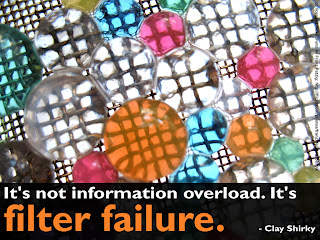 What’s do you think is wrong with Facebook? Does the newly
added timeline seem to be more of a hassle and overwhelming rather than a cool,
new, exciting way to display your life on a website? Or maybe you are one of the
long-time users who have found Facebook’s lack of a good filter to keep
unwanted friends or family members away from “friending” you as problem? These
two cases are very common amongst users worldwide, but this problem extends
more to just this networking sites. It extends to the Internet as a whole. Are
the websites with too much gadgets, tabs and unwanted videos (YouTube) too much
for you, or does the unwanted spam reaching the thousands in your Yahoo! folder
becoming an atrocity? Either way society is facing two problems that need to be
taken care of a.s.a.p. But which one should be handled first?
What’s do you think is wrong with Facebook? Does the newly
added timeline seem to be more of a hassle and overwhelming rather than a cool,
new, exciting way to display your life on a website? Or maybe you are one of the
long-time users who have found Facebook’s lack of a good filter to keep
unwanted friends or family members away from “friending” you as problem? These
two cases are very common amongst users worldwide, but this problem extends
more to just this networking sites. It extends to the Internet as a whole. Are
the websites with too much gadgets, tabs and unwanted videos (YouTube) too much
for you, or does the unwanted spam reaching the thousands in your Yahoo! folder
becoming an atrocity? Either way society is facing two problems that need to be
taken care of a.s.a.p. But which one should be handled first?
It’s should,
or logically would, be whichever is perceived to be a larger problem, and to
me, it’s filter failure? I think of it in this way. Going back to the Facebook
example, which one seems to be more of the hindrance: all the timeline
information and links you can click on, or the possibility that your boss or
family members may read some of the very personal information you release on
your status or during the changing of your relationship status? I think Clay
Shirky from the “It's Not Information Overload. It's Filter Failure.” video
would definitely agree that filter failure is a bigger problem just from his
similar story present in his speech. Those clickable links and timeline
information are only a nuisance when you not interested or not in needed of
whatever they offer. You don’t care about the link to change your privacy until
you actually need it to change your privacy, so until that time comes, it’s in
the way. So in this situation, information overload may not be such a bad
thing. On the other hand though, there is no way to cope with personal information
somehow getting out to the crowd of people it’s not intended for. Some could
say that you should make that privacy link less of a irritation and change your
privacy to keep certain people out (or simply be more careful when sending out
precious information). But what about the world wide web, where there isn’t any
universal “privacy links” or consistently successful filters of information?
Maybe that’s
the answer to this problem of how to solve filter failure. A tool that is
attached to Internet Explorer or Google Chrome that keeps certain individuals
blocked from all information that you release to the world (Yes, I know it’s kind
of harsh). Maybe Facebook should think about adding a way to selectively block
certain friends you are forced to have from information you are posting at any moment
in time. Or maybe the answer is that there isn’t an answer at all. Filter
failure is a problem of unwanted or too much information being displayed when
only a smaller amount of information was assumed to pop-up upon requested. So how
can we limit the amount of information that we received without limiting the
creator of the information in the first place? Isn’t the internet suppose to be
a playground for the mind and a canvas for the web blogger who want to make
something that they feel as though is necessary? If there was a way, and I’ll
reiterate that I don’t think there is, it definitely won’t be done through legislation
anytime soon because wasn’t that what the whole SOPA and PIPA scare was all about?
Clay Shirky's "It's Not Information Overload. It's Filter Failure"
http://blip.tv/web2expo/web-2-0-expo-ny-clay-shirky-shirky-com-it-s-not-information-overload-it-s-filter-failure-1283699
Clay Shirky's "It's Not Information Overload. It's Filter Failure"
http://blip.tv/web2expo/web-2-0-expo-ny-clay-shirky-shirky-com-it-s-not-information-overload-it-s-filter-failure-1283699